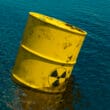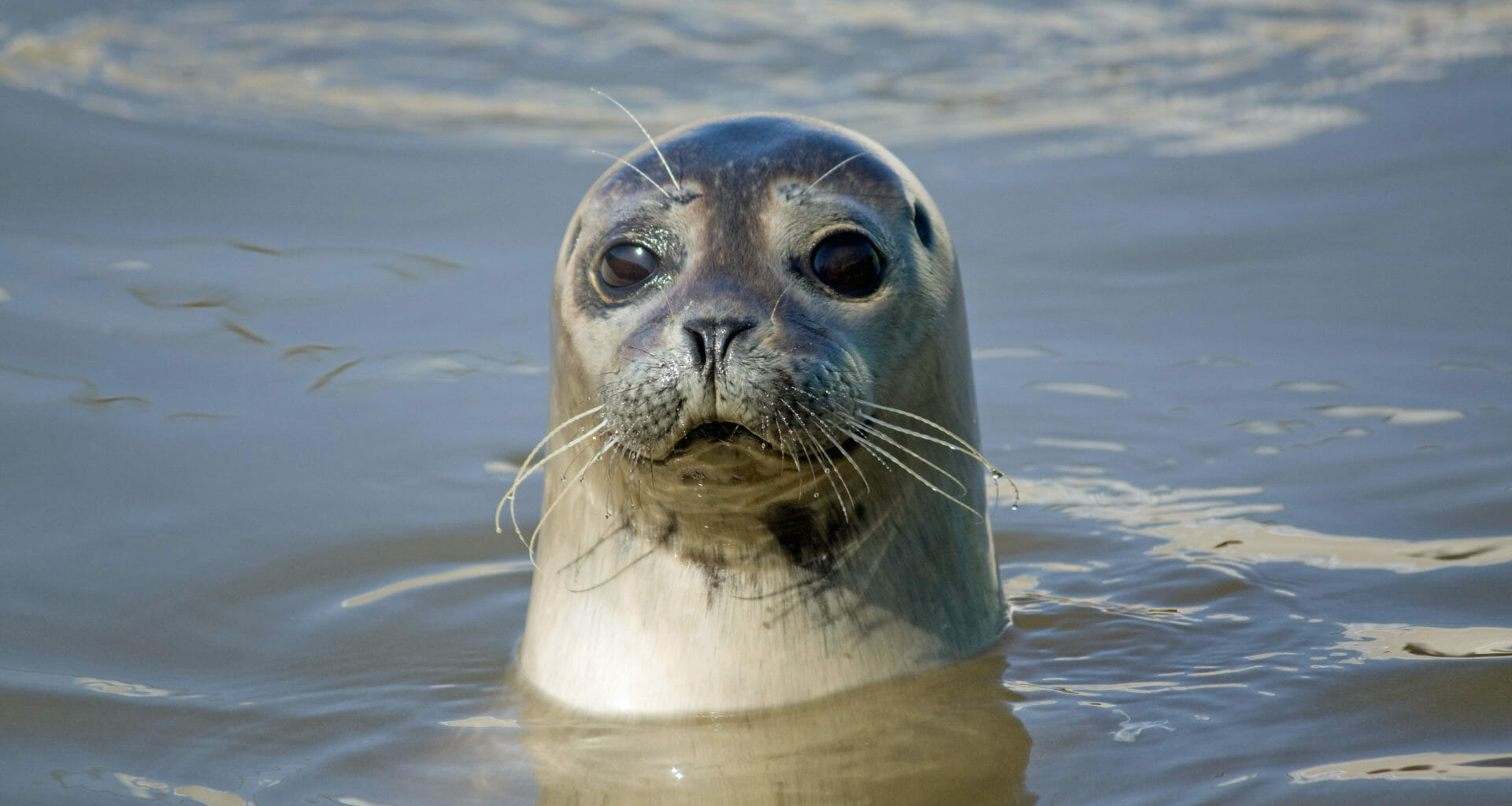The Scottish Government has launched an investigation after receiving complaints from environmental conservationists over the use of “seal scarers” by a company which has fish farms in Argyll and Bute.
The row is over the use of acoustic deterrent devices (ADDs), aka seal scarers, which are used to deter seals from attacking fish farms by emitting a sound in the water they find unpleasant.
Critics of seal scarers – devices branded as “sonic torture” – claim they cause hearing damage and stress in dolphins, porpoises and whales and therefore breach legislation to protect cetaceans.
The farmed salmon industry says seals are a major problem and it is “critical” that farmers have deterrents to protect their livestock. According to the Scottish Salmon Producers Organisation (SSPO), net breaches in 2019 led to 500,000 lost fish.
The use of ADDs is allowed but remains controversial. In March the Scottish Government published a report expressing “particular concern” over the number of finfish farms using the devices. The report said they can have “unintended consequences for non-target species, particularly cetaceans which are listed as European Protected Species”.
A newer generation of ADDs have been developed that “reduce sound outputs at frequencies most likely to cause disturbance”, the report said, adding that questions remained over the “efficacy of these devices in deterring seals and the potential for impacts on non-target species”.
To coincide with the Scottish Government’s report the SSPO announced in March that the sector is no longer using ADDs that “may have been considered to cause disturbance to European Protected Species”.
SSPO’s Anne Anderson said then: “Scottish salmon farmers are not using any acoustic deterrent devices that may have been considered to endanger cetaceans such as dolphins, porpoises and whales.
“As such the Scottish salmon farming sector is committed to, where necessary, only using acoustic devices that have been scientifically proven to be compliant with the US Marine Mammals Protection Act (MMPA).”
But now The Ferret has seen a copy of a complaint submitted to both Police Scotland and Scottish ministers by Inside Scottish Salmon Feedlots (ISSF), an environmental conservation group which opposes open cage salmon farming, and Clyde Porpoise CIC, a marine mammal project.
It refers to the use of seal scarers at 10 fish farms operated by The Scottish Salmon Company (TSSC) in Argyll and Bute. Clyde Porpoise and ISSF said these ADDs have been disturbing porpoises, which, they claim, would be an offense under Wildlife Countryside Act 1981 and Nature Conservation Scotland Act 2004.
They also pointed out that fish farms must obtain a European Protected Species (EPS) licence to operate an ADD unless they can demonstrate the equipment does not disturb porpoises. These licences can be issued by government agencies to permit activities that would otherwise be illegal.
Marine Scotland guidance says: “It is your responsibility as the fish farm operator to determine whether you need to apply for an EPS licence. However given current scientific advice, it is likely that an EPS licence will be required for all currently available ADDs unless you can demonstrate that the device( s) operating at your site will not cause disturbance to cetaceans.” The industry maintains that an EPS licence is not required if no harm is being caused.
In the complaint Clyde Porpoise CIC said it monitored seal scarers at 10 TSSC fish farms in May and June, claiming “the output frequency is well within sensitive hearing range of harbour porpoise and amplitude at a level known to disturb the animals”.
David Nairn, of Clyde Porpoise CIC, said: “Our surveys support the overwhelming scientific evidence base that porpoises are being impacted by these devices.”
Corin Smith of ISSF said: “This is a powerful and groundbreaking investigation by community groups, which ultimately comes down to the simple issue of trust.
“People will rightly ask why salmon farms in Scotland should be allowed to operate to weaker environmental standards than the same companies in other countries? Can communities and the Scottish Government really trust what the salmon farming industry says?”
A spokesperson for TSSC said: “The welfare of our salmon is of paramount importance and, like any farmer on land or sea, we have a responsibility to keep our stock free from stress and harm. This includes protecting our stock from attacks from predators like seals.
They added: “We have invested heavily in a range of measures to deter these attacks, which includes the roll out of rigid netting across all of our sites. Our use of deterrent devices, when essential to protect our fish, meets current legal requirements and does not cause disturbance to cetaceans.”
A spokesperson for the SSPO said: “Our sector is committed to working with Marine Scotland to develop a science-based approach to managing the known problem of seal predation. The ADD use reported by ISSF refers to a relatively small number of second generation ADDs.
“The Scottish salmon farming sector no longer uses acoustic deterrents that may have been considered to cause disturbance to European Protected Species. As a sector, we encourage continued innovation to find solutions to seal predation in a way which accounts for our responsibilities to protect the marine environment.”
The Scottish Government confirmed an investigation had started. A spokesperson told The Ferret: “A report containing allegations of wild life crime has been received. We are currently investigating and liaising with Police Scotland and are unable to comment further at this time.”
A Police Scotland spokesperson said: “We can confirm that a report has been received and the information is being assessed.”
The row follows a new report this month claiming seal scarers on salmon farms may be damaging the hearing of porpoises, including areas set aside for their protection.
The study by scientists at Scottish Association for Marine Science (SAMS) and the Centre for Fisheries and Aquaculture Science (CEFAS) modelled the combined noise from ADDs from 120 fish farms covering an area from Cape Wrath to the Clyde.
The area included the Inner Hebrides and the Minches special area of conservation (SAC) for harbour porpoises, the largest of its kind in Europe. The study found large areas within the SAC were regularly exposed to high noise levels from ADDs.
The accumulative level of noise could exceed thresholds in harbour porpoise hearing, the scientists found, which may result in temporary impairment at the lower end of their hearing range.
The report said the sound from ADDs could remain above the threshold for temporary hearing impairment up to 17 miles from a farm.
The study was published in the Journal of Applied Ecology. Its authors are urging policy makers and the aquaculture industry to consider the consequences of multiple farms together emitting noise.
The authors said that although newer ADDs are available, the cumulative noise of these devices and configurations has not yet been assessed.
Alternative solutions, such as the use of more robust netting material and better tensioning of the net pens, do exist and have been proven successful in reducing seal predation in some areas.
Dr. Denise Risch
Dr Denise Risch, a co-author of the study added: “Our study highlights, that noise pollution from ADDs has been widespread on the Scottish west coast.
“Alternative solutions, such as the use of more robust netting material and better tensioning of the net pens, do exist and have been proven successful in reducing seal predation in some areas.
“Their expanded use should be further explored and encouraged as a way to reduce the overall noise footprint from ADDs on the Scottish west coast.”
John Aitchison, of Coastal Communities Network Scotland, said: “In 2020, Marine Scotland (MS) told all of Scotland’s fish farming companies that they needed licences to use all the currently available types of seal-scarers, unless they could demonstrate that the devices would not disturb cetaceans.
“MS also confirmed that porpoises occur wherever there are fish farms. If they care about their reputations at all, we call on every fish farm operator to state for the record that they have stopped using all ADD’s and that the waters around their fish farms in Shetland, Orkney, the Hebrides and the West Coast are now free from this harmful noise pollution. If they believe their ADDs do not harm porpoises and dolphins, we call on them to publish the proof.”
David and Jean Ainsley, an Oban couple who run a marine wildlife tourism business, said: “Under Scottish law, it is an offence to disturb or injure any porpoise, dolphin or whale.
“Many fish farms in Scotland do not use ADDs. They use stronger or double nets to keep farmed salmon and seals separated.”
A ban on shooting seals to protect fish farms was introduced on 1 February 2021.
Photo Credit: iStock/hpboerman














I was kayaking in Loch Fyne in 2020 and was making my way back to Largs at the beginning of September. I ran into a 5m swell and 30-35 mph headwinds as I approached Portavadie Marina. I paddles for about twenty minutes staying just out of range of the fish farm there, watched by the Captain of the ferry who stood off to my starboard the entire time. Many thanks to him the RNLI came to my aid.
I eventually got to the fish farm and using a rope held onto to the floating net. Throughout my fifteen minutes there I was affected by the seal scarer and was twitching (maybe some muscle fatigue from constant paddling?) and felt as if I were being constantly shocked. Truly unpleasant. One wonders what effect it has on whatever breed offish is being farmed. I have spoken to two Marine Scotland representatives (formerly fish farm workers incidentally) who see nothing wrong with the technology being used. This shocks me (no pun intended) and of course I now understand when I did report to MS that I am dealing with former employees of business concerns; rather than independently educated individuals, who silence my complaints, most recently about dredging fishing boats in protected areas. I will now use a GoPro to film and record all that I come across as being contrary to the so-called rules set out by MS and of course publish online.
It would seem that the gamekeeper and the poachers are walking hand-in-hand.